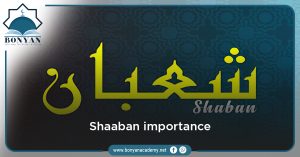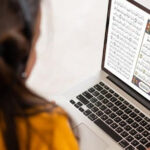Ramadan is a special time of year for Muslims around the world. It is a month of fasting, prayer, and reflection, and it provides an opportunity for individuals to strengthen their faith and connect with their community.
However, it can be challenging to know how to spend your time during this important month. In this article, we will explore some ways to make the most of Ramadan.
Fasting in Ramadan
Fasting during Ramadan is a religious obligation for Muslims, and is an important time for spiritual reflection and growth. To spend your Ramadan by fasting, it is important to first understand the basic guidelines for fasting, including abstaining from food, drink, and other physical needs from sunrise to sunset.
It is also important to use the time during the day to strive towards spiritual growth, such as by reading and reflecting on the Quran, engaging in acts of charity, and spending time in prayer and meditation.
Other ways to spend your Ramadan while fasting include breaking your fast with friends and family, attending nightly prayers at the mosque, and participating in community iftars (the meal to break the fast). Additionally, it is important to stay hydrated and to break your fast with nutritious and healthy foods.
Remember to always consult with a healthcare professional before fasting, especially if you have any health concerns.
Knowing the Importance of Prayer in Ramadan
The act of prayer during Ramadan is considered an important pillar of the Islamic faith and is essential to the overall spiritual health of a Muslim. Ramadan is considered to be the most important month of the year for Muslims to engage in prayer and spiritual reflection.
There are several reasons why prayer during Ramadan is important:
- Spiritual Renewal
Prayer during Ramadan allows Muslims to renew their spiritual connection with Allah and seek forgiveness for their sins. It is a time to reflect on one’s actions, thoughts, and behavior, and to make positive changes. - Strengthening Faith
Engaging in prayer during Ramadan helps Muslims to strengthen their faith and devotion to Allah. It also helps to build a closer relationship with Allah, thereby increasing one’s level of iman. - Community Building
Praying together in the mosque during Ramadan is a great opportunity to engage in community building and to create a sense of unity among Muslims. - Developing Patience
Fasting during the day requires patience and endurance. Engaging in prayer during Ramadan can further develop one’s ability to be patient, which can be a valuable trait in everyday life.
So prayer during Ramadan is important because it allows Muslims to renew their faith, seek forgiveness, develop patience, and build a sense of community among fellow believers.
Learning Quran and its recitation

Spending Ramadan reading the Quran and its recitation is a highly recommended act of worship for Muslims. The Quran is the holy book of Islam and is believed to be the word of Allah revealed to the Prophet Muhammad (peace be upon him) over 23 years.
Here are some reasons why reading and reciting the Quran during Ramadan is important:
- It Increases One’s Reward
The Quran is known as the word of Allah, and reading it is considered a good deed that carries a great reward. The reward for reading the Quran during Ramadan is multiplied as compared to other times of the year. - It Helps to Strengthen One’s Relationship with Allah
Reading and reciting the Quran helps Muslims to build a stronger relationship with Allah. They begin to understand Allah’s message and gain a greater appreciation of His wisdom. - It Promotes Reflection and Contemplation
The Quran is full of guidance and wisdom, and reading it allows Muslims to reflect on its teachings and contemplate how to apply them to their daily lives. - It Helps to Develop Linguistic Skills
Reading and reciting the Quran involves learning and memorizing the Arabic language, which is the language in which the Quran was revealed.
Overall, spending Ramadan learning the Quran and its recitation is not only a highly recommended act of worship, but it also provides many benefits such as increasing one’s reward, strengthening one’s relationship with Allah, promoting reflection and contemplation, as well as developing linguistic skills.
Zakat and charity in Ramadan

The act of giving zakat and charity is highly encouraged among Muslims. Zakat is one of the five pillars of Islam and refers to the obligation of giving a portion of one’s wealth to those in need.
On the other hand, charity refers to giving anything to help others, and it can be in the form of giving money, food, clothes, or even time and effort to help those in need.
Ramadan is considered a special month in Islam, and giving zakat and charity during this time is considered more rewarding than at other times of the year. It is seen as a way to purify oneself and gain blessings from Allah. Many Muslims choose to give their zakat and charity as a way to increase their rewards.
Charity can take many forms, including providing food for those who are struggling to make ends meet, offering financial support to those who are in need, or volunteering at local charities or local mosques. Many mosques and community centers also offer food banks and pantries to help those in need during Ramadan and beyond.
For that reason, giving zakat and charity during this holy month is considered a highly virtuous act in Islam. It is a way of giving back to society, helping those in need, and increasing one’s blessings and rewards in the eyes of Allah.
Sunnah practices during Ramadan
Ramadan is a special and blessed month in the Islamic calendar, and it comes with many special practices that Muslims follow in remembrance of their faith. Some of the Sunnah practices that Muslims follow during it include:
- Intention:
Muslims start each day of Ramadan with the intention of fasting. Intention is a powerful tool that helps to focus the mind and brings purpose to actions. - Suhoor:
Muslims wake up early before sunrise to have a pre-dawn meal, known as suhoor, to gain energy and strength for the upcoming day of fasting. - Iftar:
Muslims break their fast at sunset with a meal called iftar, which is usually a simple meal of dates, water, and a light meal followed by the Maghrib prayer. - Recitation of the Quran:
Muslims recite the Quran during the month of Ramadan. Many Muslims aim to complete the entire Quran at least once during the month, while others recite a portion of the Quran daily. - Taraweeh prayer:
Many Muslims perform Taraweeh prayer during the whole month. This is a special prayer that is performed after the Isha prayer and includes long recitations from the Quran. - Nawafil prayers:
Muslims also perform extra prayers, called Nawafil prayers, during Ramadan. - Forgiveness:
Muslims use this great month as an opportunity to seek forgiveness from Allah and to forgive others for any wrongs they may have committed.
These Sunnah practices are meant to strengthen one’s faith, purify the soul, and increase one’s blessings and rewards in the eyes of Allah.
In conclusion, Ramadan is a time of spiritual reflection, self-improvement, and community building. To make the most of this holy month, it is important to set clear goals and intentions, prioritize acts of worship and charity, and foster a sense of connection with others.
By focusing on the pillars of Islam and practicing gratitude, patience, and mindfulness, we can deepen our faith and strengthen our relationships with Allah and our fellow human beings.









